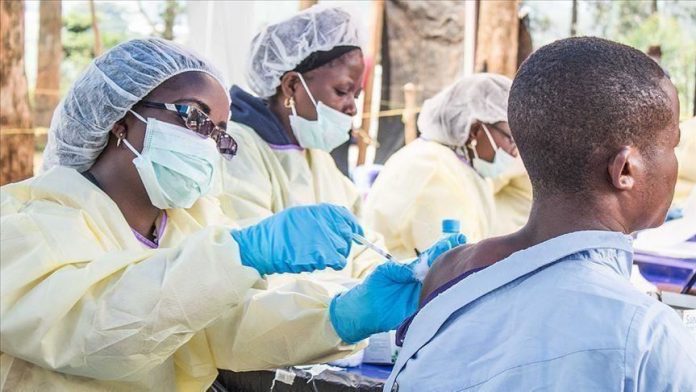Africa is the continent least affected by the coronavirus epidemic. While it is premature to conclude that the worst is over, the continent has certain peculiarities that put it outside the predicted disaster. The WHO offers some explanations.
We must beware of any hasty conclusions, warns the WHO, but the facts are there: Africa is less affected than the rest of the world by the coronavirus epidemic.
The organization, which tries out avenues for reflection, encourages African countries to continue their efforts against the spread of the virus, and to collect data in order to understand the phenomenon.
The WHO notes that nearly fifty countries have reported a decrease in the incidence of cases between September 17 and 23, 2020. A situation which confirms trends observed for two months.
The lowest number of daily deaths was recorded on September 20. “Overall, I welcome the response from African countries. We are making progress through the concerted efforts of governments, communities and partners,” commented on a Twitter “thread” Matshidiso Moeti, director of the WHO Africa office.
Office reports that nearly 30 African countries have recorded a decrease in new cases, of which at least six have recorded a drop of more than 50%. These are Sao Tome and Principe, Mauritius, Botswana, Seychelles, Lesotho and Senegal.
At the same time, some 15 countries have reported an increase in the number of cases, including Niger (350% rebound), South Sudan, the Republic of Congo, Chad and Mali.
In general, there has been a rise in the number of new cases over the same period in Central and North Africa – largely due to new cases in Morocco, Libya and Tunisia. In total, the African continent now has more than 1.4 million cases of Covid-19 including 34,269 deaths (case fatality rate of 2.4%) and nearly 1.17 million people cured.
A response started very early!
Africa is believed to account for 3.7% of confirmed Covid-19 cases and 2.6% of reported deaths worldwide. South Africa remains the worst-affected country on the African continent and ranks eighth in the world, although the number of deaths is relatively low.
Overall, Matshidiso Moeti justifies this downward trend by the early interventions decided by different countries, which have helped contain the epidemic. “Beginning in March, governments took measures to restrict movement and assembly, which created an opportunity to keep cases low and build public health capacity.”
Various modes of transmission have been observed in the region, with community transmission established in 35 countries, nine countries having clusters of cases and three sporadic cases. “In the future, countries should continue to strengthen data and information, implementing the main public health tools of surveillance, screening, isolation and contact tracing,” said Dr Moeti.
Refraining from concluding, the official calls for caution “Studies are underway to verify whether communities have antibodies for Covid-19, which means that people have been infected, but not detected,” he said. she argued, noting that “some preliminary results suggest a higher number of infections than what has been reported.”
The same virus as elsewhere!
More broadly, WHO preliminary analysis suggests that “over 80% of cases in African countries are asymptomatic”. “And this is reinforced by the fact that in most communities, healthcare facilities have not been overwhelmed by severe cases of Covid-19.”
In any case, the interpretation of the pandemic situation on the African continent is complex. It requires a combination of measures and tools. Nevertheless, it seems that the virus circulating in Africa is the same one that is ravaging Europe. There is no question of a less dangerous African strain.
In addition to the containment measures decided on very early, and often more drastically than in Europe or America, African countries have benefited from a few particularities. In the first place, their experience of infectious diseases, such as Ebola, played out, despite sometimes failing health systems.
Second, the age of the population is advanced. We see that death rates are highest in countries where the average age of the population is itself high. In Algeria, for example, 10% of the population is over 65%, and this country presents a higher lethality.
Matshidiso Moeti, this time at a press conference on September 24, cited other factors: “International mobility, the ability to travel within countries, road networks, the number of cars per capita. All this plays on the ability of the virus to spread in countries.”
The temperature or even the way of life could also play a role. Few of the elderly Africans live in retirement homes, important homes in other regions. For her part, Francisca Mutapi, an infectious disease specialist at the University of Edinburgh, recalls that the virus is rarely transmitted outdoors. “And Africa has a significant portion of the rural population who spend time outdoors.”
A good collaboration between Africans!
Citing the track of “cross-immunity” with other coronaviruses, the infectious disease specialist reveals the launch of a large study to test this hypothesis in Zimbabwe. Other comparable studies are being carried out on the continent.
Either way, it is a bit early to confirm that Africa is returning “to normal”, as some experts argue. “Even if the hope of a vaccine for 2021 is on everyone’s mind, the continent is not immune from a second wave and the road to definitively emerge from the crisis is still long”, warned Matshidiso Moeti.
Matshidiso Moeti!
“We have been working on new models throughout the pandemic by collecting as much data as possible and drawing lessons from our Ebola experience,” confirms Francisca Mutapi. “Over the months, we have conducted a comparative analysis of the different responses to come out the best.”
Vigilance is therefore increased. WHO and the African Centers for Disease Control and Prevention (Africa CDC) continue to sequencing the coronavirus genome. While several countries, like Senegal and Morocco, are now producing their own Covid tests.
Thus, the health crisis will have advanced partnerships and exchanges of experience between African countries. However, “we still need more African researchers,” concluded Francisca Mutapi. Researchers who can dialogue with national and continental institutions to build, whatever the virus, the most relevant response possible.































